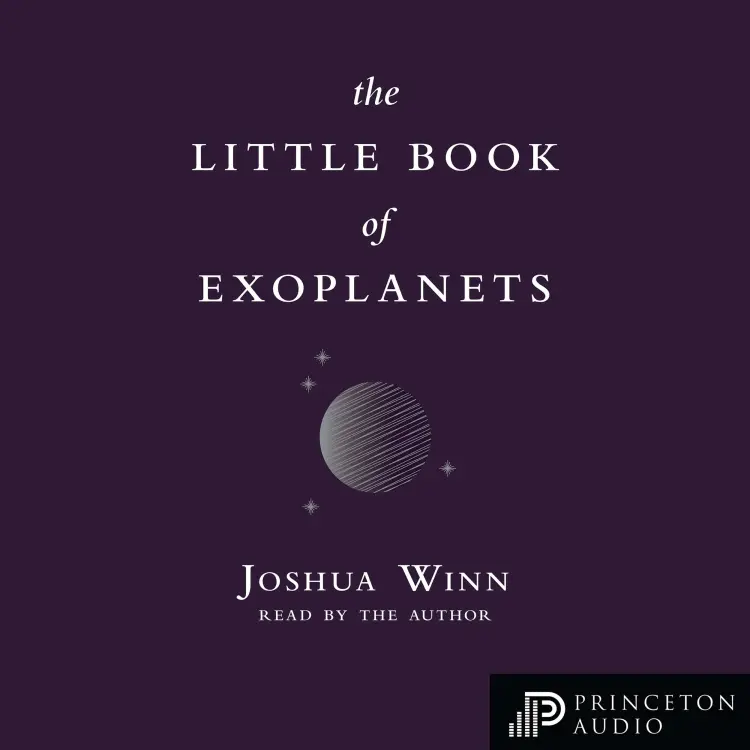
The Little Book of Exoplanets
Joshua N. Winn
Unabridged
8 Stunden 14 Minuten
Hinweis: Für das Abspielen der Hörbücher oder Hörspiele können auf den jeweiligen Plattformen, wie z.B. Spotify, Kosten anfallen. Lismio hat keinen Einfluss darauf, welche Hörbücher und Hörspiele bei dem Service verfügbar sind.
Einige Artikel enthalten Affiliate-Links (gekennzeichnet mit einem Sternchen *). Wenn ihr auf diese Links klickt und Produkte kauft, erhalten wir eine kleine Provision, ohne dass für euch zusätzliche Kosten entstehen. Eure Unterstützung hilft, diese Seite am Laufen zu halten und weiterhin nützlichen Content zu erstellen. Danke für eure Unterstützung!
Vom Herausgeber
In this audiobook, astrophysicist Joshua Winn provides an accessible introduction to exoplanets and explains the cutting-edge science behind recent discoveries
For centuries, people have speculated about the possibility of planets orbiting distant stars, but only since the 1990s has technology allowed astronomers to detect them. At this point, more than five thousand such exoplanets have been identified, with the pace of discovery accelerating after the launch of NASA's Transiting Exoplanet Satellite Survey and the Webb Space Telescope. In The Little Book of Exoplanets, Princeton astrophysicist Joshua Winn offers a brief and engaging introduction to the search for exoplanets and the cutting-edge science behind recent findings. In doing so, he chronicles the dawn of a new age of discovery-one that has rapidly transformed astronomy and our broader understanding of the universe.
Scientists now know that many Sun-like stars host their own systems of planets, some of which may resemble our solar system and include planets similar to the Earth. But, Winn tells us, the most remarkable discoveries so far have been of planets with unexpected and decidedly un-Earth-like properties, which have upended what we thought we knew about the origins of planetary systems. Winn provides an inside view of the sophisticated detective work astronomers perform as they find and study exoplanets and describes the surprising-sometimes downright bizarre-planets and systems they have found. He explains how these discoveries are revolutionizing astronomy, and he explores the current status and possible future of the search for another Earth. Finally, drawing on his own and other scientists' work, he considers how the discovery of exoplanets and their faraway solar systems changes our perspectives on the universe and our place in it.
For centuries, people have speculated about the possibility of planets orbiting distant stars, but only since the 1990s has technology allowed astronomers to detect them. At this point, more than five thousand such exoplanets have been identified, with the pace of discovery accelerating after the launch of NASA's Transiting Exoplanet Satellite Survey and the Webb Space Telescope. In The Little Book of Exoplanets, Princeton astrophysicist Joshua Winn offers a brief and engaging introduction to the search for exoplanets and the cutting-edge science behind recent findings. In doing so, he chronicles the dawn of a new age of discovery-one that has rapidly transformed astronomy and our broader understanding of the universe.
Scientists now know that many Sun-like stars host their own systems of planets, some of which may resemble our solar system and include planets similar to the Earth. But, Winn tells us, the most remarkable discoveries so far have been of planets with unexpected and decidedly un-Earth-like properties, which have upended what we thought we knew about the origins of planetary systems. Winn provides an inside view of the sophisticated detective work astronomers perform as they find and study exoplanets and describes the surprising-sometimes downright bizarre-planets and systems they have found. He explains how these discoveries are revolutionizing astronomy, and he explores the current status and possible future of the search for another Earth. Finally, drawing on his own and other scientists' work, he considers how the discovery of exoplanets and their faraway solar systems changes our perspectives on the universe and our place in it.











